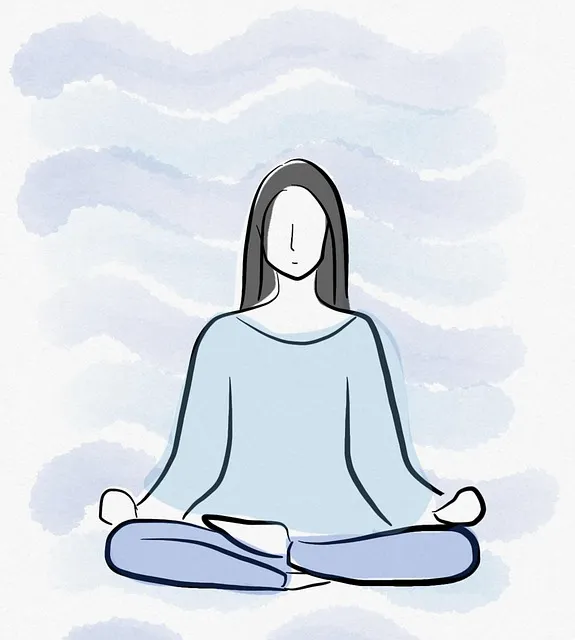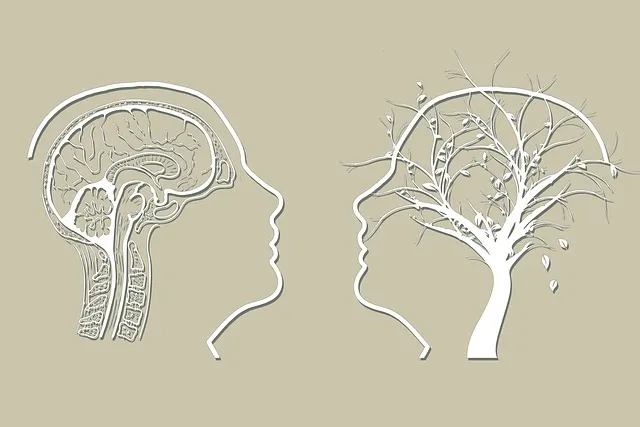Anxiety disorders, characterized by persistent worry and fear, are manageable through various techniques offered at Kaiser Permanente mental health Lakewood. Strategies include Cognitive Behavioral Therapy (CBT) to challenge negative thought patterns, mindfulness exercises for stress reduction, relaxation techniques like deep breathing, and journaling to track anxiety triggers. Lifestyle modifications such as exercise, sleep, and social connections are also key components of holistic mental wellness plans developed by Kaiser Permanente's specialists.
At Kaiser Permanente Mental Health Lakewood, we understand that anxiety is a common yet overwhelming experience. This article guides you through effective anxiety management techniques tailored by experts. We delve into understanding anxiety: its symptoms and causes, offering insights to help you recognize and address triggers. Explore powerful tools like Cognitive Behavioral Therapy (CBT), discover mindfulness and relaxation practices for daily calm, and learn valuable lifestyle changes to enhance your mental well-being.
- Understanding Anxiety: Symptoms and Causes
- Cognitive Behavioral Therapy (CBT): A Powerful Tool
- Mindfulness and Relaxation Techniques for Daily Practice
- Lifestyle Changes for Better Mental Well-being
Understanding Anxiety: Symptoms and Causes

Anxiety is a normal human response to stress and uncertainty, but when it becomes overwhelming or persistent, it can significantly impact daily life. According to Kaiser Permanente mental health specialists in Lakewood, chronic anxiety disorders are characterized by excessive worry, fear, and restlessness, often accompanied by physical symptoms like rapid heartbeat, muscle tension, and insomnia. Understanding these symptoms is the first step towards managing anxiety effectively.
The causes of anxiety are multifaceted, including genetic predisposition, brain chemistry imbalances, traumatic life events, and certain medical conditions. At Kaiser Permanente Lakewood, mental health professionals emphasize that self-awareness exercises can help individuals recognize triggers and patterns associated with their anxiety. Additionally, empathy building strategies, such as cognitive behavioral therapy (CBT), teach individuals to challenge negative thought processes and develop healthier coping mechanisms. Stress reduction methods, including mindfulness meditation and deep breathing exercises, are also valuable tools in managing anxiety symptoms, promoting relaxation, and enhancing overall well-being.
Cognitive Behavioral Therapy (CBT): A Powerful Tool

Cognitive Behavioral Therapy (CBT) is a highly effective anxiety management technique recognized and offered by mental health professionals like those at Kaiser Permanente mental health Lakewood. CBT focuses on identifying and changing negative thought patterns and behaviors that contribute to anxiety and related conditions. By challenging unhelpful thoughts and replacing them with more realistic, balanced perspectives, CBT empowers individuals to manage their symptoms and improve overall well-being.
This stress reduction method is particularly effective in treating a range of mental health issues, including depression prevention. Through CBT, individuals learn valuable coping strategies that enhance mood management, enabling them to navigate challenging situations with greater ease. By understanding the connection between thoughts, feelings, and behaviors, people can break free from anxious cycles and lead more fulfilling lives.
Mindfulness and Relaxation Techniques for Daily Practice

Anxiety can be managed through daily mindfulness and relaxation practices, which are easy to incorporate into your routine with guidance from Kaiser Permanente mental health Lakewood. These techniques, rooted in Mind Over Matter principles, help individuals stay present and calm. For instance, mindful breathing exercises teach you to focus on your inhalation and exhalation, promoting a sense of tranquility and reducing stress.
Maintaining a Mental Wellness Journaling Exercise can also be beneficial. Dedicate a few minutes each day to jot down thoughts and feelings, allowing for self-reflection and better understanding of anxiety triggers. This practice, combined with regular relaxation routines, contributes significantly to overall stress management, as recommended by mental health professionals at Kaiser Permanente.
Lifestyle Changes for Better Mental Well-being

At Kaiser Permanente mental health Lakewood, we recognize that lifestyle changes play a significant role in managing and improving one’s mental well-being. Incorporating healthy habits into daily routines can have a profound impact on reducing anxiety and fostering resilience. This includes prioritizing regular physical activity, which releases endorphins that alleviate stress and boost mood. Adequate sleep is another cornerstone; establishing consistent sleep patterns helps regulate emotions and enhances overall mental clarity.
Additionally, cultivating mindfulness through practices like meditation or deep breathing exercises can effectively manage anxiety symptoms. Our healthcare providers emphasize the importance of these techniques, often incorporating them into tailored therapy plans. We also promote social connections and encourage participation in community outreach programs (a strategy that incorporates Cultural Sensitivity in Mental Healthcare Practice and Healthcare Provider Cultural Competency Training), as social support networks are vital for mental health. These changes collectively contribute to a holistic approach to well-being, ensuring individuals feel empowered to navigate life’s challenges with greater ease.
Anxiety management is a holistic journey, and with the right tools from Kaiser Permanente mental health Lakewood, you can take control. By understanding your anxiety, exploring evidence-based therapies like CBT, incorporating mindfulness, and adopting healthier lifestyles, you can significantly reduce symptoms and improve overall well-being. Remember, seeking help is a sign of strength, and with dedicated practice, you can navigate life’s challenges with resilience.






